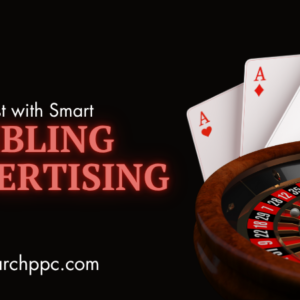In today’s competitive market, Insurance Advertising has evolved from simple print campaigns to data-driven, digital-first strategies that reach audiences where they’re most active — online. With rising competition and increasing consumer skepticism, insurance marketers are under constant pressure to deliver campaigns that not only attract attention but also convert leads into loyal policyholders.

The good news? There are tried-and-tested methods that can help you turn more prospects into policy buyers. Let’s explore the most effective insurance advertising strategies that can truly boost your conversions — and how to execute them smartly.
The Evolving Landscape of Insurance Advertising
Insurance companies today face an audience that’s more informed, more demanding, and less patient with generic ads. According to a 2024 Statista report, over 75% of insurance buyers now research and compare policies online before making a purchase. This makes digital insurance advertising more important than ever.
But this digital evolution also brings challenges. Insurers must fight for attention in crowded feeds while ensuring compliance, trust, and authenticity — something traditional marketing often failed to balance.
That’s why modern insurance marketing is about more than just visibility. It’s about connecting data, creativity, and trust to deliver measurable ROI.
Low Conversion Rates Despite High Traffic
Many insurance advertisers face a familiar frustration — strong website traffic but low policy conversions. You might have thousands of clicks from paid campaigns, but only a fraction turns into actual leads or sales.
Why does this happen?
- Lack of audience segmentation – Not all users visiting your site are ready to buy.
- Complex messaging – Insurance ads often use jargon that intimidates rather than informs.
- Weak call-to-action (CTA) – Generic “Get a Quote” buttons don’t always create urgency.
- Misaligned platforms – Spending on platforms that don’t match your audience’s intent.
These issues highlight a simple truth — awareness doesn’t equal action. To increase policy conversions, you need smarter advertising frameworks.
The Smart Way Forward with Data-Driven Insurance Advertising
The best insurance advertisers aren’t just creative — they’re analytical. They use customer data to guide every campaign decision.
Here’s what top-performing insurance marketers are doing differently:
- Audience Personalization: Using demographic and behavioral data to serve relevant ads, such as car insurance for new vehicle owners or term plans for young professionals.
- Retargeting: Keeping your brand top of mind through remarketing to users who showed interest but didn’t complete a purchase.
- Cross-Platform Campaigns: Running ads across search, display, and social platforms for a cohesive experience.
- Conversion-Centric Landing Pages: Tailoring landing pages to match the ad’s promise with clear CTAs.
For a complete strategy overview, check this Guide to Insurance Advertising & Lead Generation — a resource that breaks down actionable steps to generate quality leads.
1. Personalization: The Cornerstone of Modern Insurance Marketing
Today’s insurance buyers expect relevance. Personalization can boost conversion rates by as much as 300%, according to marketing studies.
How to implement it effectively:
- Collect data through forms, cookies, or analytics tools.
- Segment audiences by age, need, or insurance type.
- Use dynamic ad content that adjusts based on user behavior.
Example: A user searching “affordable health insurance” could see an ad offering “Low-Premium Health Plans for Young Adults.” That relevancy encourages action.
Personalized insurance promotion campaigns not only grab attention but also build trust — essential in a market where credibility sells policies.
2. Leverage PPC Campaigns for Qualified Traffic
Pay-per-click (Insurance PPC Campaigns) remains one of the most efficient ways to generate leads. Instead of relying solely on organic reach, PPC allows advertisers to place their offerings directly in front of high-intent audiences.
When managed correctly, PPC ads can yield up to 50% higher conversion rates than non-targeted digital ads.
Tips for insurance PPC success:
- Use precise keywords: “affordable term insurance” or “compare car insurance quotes.”
- Optimize ad copy for clarity and urgency.
- Regularly test landing pages for CTA placement and readability.
Choosing the right ad platform is equally vital. The Insurance Advertising category is designed to connect advertisers with high-quality finance and insurance traffic sources that actually convert.
3. Simplify Your Messaging
Insurance ads often fail because they sound complicated. Consumers rarely respond to technical language. Instead, they want simple, relatable communication.
Do this:
- Focus on outcomes: “Protect your family’s future” rather than “Comprehensive life coverage plan.”
- Use storytelling: Showcase real-life scenarios of how policies provided financial security.
- Keep CTAs short and persuasive: “Get Protected Today” or “Start Your Coverage Now.”
Simple messaging helps users understand the value instantly, reducing hesitation and increasing conversions.
4. Build Trust with Transparency and Reviews
Insurance is a trust-based business. Buyers won’t convert if they doubt your credibility.
To strengthen trust:
- Display policy details clearly — premiums, benefits, and exclusions.
- Feature customer reviews and testimonials in your ads or landing pages.
- Include certifications or awards that reinforce authenticity.
Transparency drives reassurance, which in turn boosts policy conversions.
5. Use Retargeting to Win Back Interested Prospects
Did you know? Over 90% of first-time visitors to insurance websites don’t convert immediately. But with retargeting ads, you can bring them back when they’re ready to decide.
How to implement:
- Retarget users who visited specific pages (like “life insurance quotes”).
- Show reminder ads within 7–14 days to reinforce brand recall.
- Offer limited-time discounts or free consultations to re-engage interest.
This strategy helps you recover lost leads efficiently and cost-effectively.
6. Focus on Mobile-First Experiences
More than 65% of insurance inquiries now originate from mobile devices. If your ads or landing pages aren’t mobile-friendly, you’re missing a significant opportunity.
Optimization checklist:
- Fast-loading pages (under 3 seconds).
- Easy navigation with clear CTAs.
- Short, mobile-optimized forms.
Mobile-first design not only improves user experience but also contributes to better ad performance and conversion rates.
7. Content-Led Campaigns: Educate, Then Sell
People don’t buy policies — they buy peace of mind. Educational content bridges the gap between interest and purchase.
Try running content-driven campaigns like:
- Short explainer videos about insurance benefits.
- Blog posts addressing common pain points (“Why Life Insurance Isn’t Just for Parents”).
- Infographics comparing policy options.
These efforts help position your brand as a reliable expert rather than just another seller. Once users trust your insights, conversions follow naturally.
8. Optimize Conversion Funnels with A/B Testing
Never assume what works — test it. A/B testing different ad headlines, visuals, or CTAs helps you refine campaigns for maximum efficiency.
Examples of what to test:
- Headline variations: “Protect Your Future Today” vs. “Get Coverage You Can Trust.”
- CTA colors and placement.
- Landing page formats (form length, visuals, and testimonials).
Constant testing ensures that every dollar spent moves you closer to your conversion goals.
9. Integrate Automation for Smarter Lead Nurturing
Automation tools simplify lead follow-ups and tracking. From automated emails to dynamic ad adjustments, automation ensures consistent engagement even when users aren’t ready to buy immediately.
Best practices:
- Send follow-up reminders for unfinished quote requests.
- Use chatbots for instant policy inquiries.
- Score leads based on engagement level to focus ad spend efficiently.
Smart automation turns leads into customers — and customers into long-term clients.
10. Measure, Analyze, and Adjust
Insurance advertisers who track metrics like click-through rates (CTR), cost per acquisition (CPA), and policy conversion ratios gain a competitive edge.
Use tools like Google Analytics or PPC dashboards to identify what’s working and where improvements are needed.
Regular optimization isn’t optional — it’s the key to continuous growth in insurance promotion performance.
Combine Strategy, Technology, and Insight
The future of insurance advertising lies in blending creativity with analytics. By combining personalized ads, transparent communication, and performance tracking, you can create campaigns that don’t just attract — they convert.
Ready to put these strategies into action? Launch Your Insurance Ad Campaign Today and start connecting with qualified prospects that convert faster.
Conclusion
Effective insurance advertising is no longer about who spends more — it’s about who advertises smarter. By focusing on personalization, trust, mobile optimization, and data-backed decisions, advertisers can drive meaningful engagement and increase policy conversions.
The insurance market may be competitive, but with the right approach, you can stand out, build trust, and turn leads into loyal policyholders.
In short — the right message, at the right time, to the right person — that’s the ultimate formula for success in insurance advertising.



